Postcard #1 from Australia
Abigail Quic, SERES facilitator and program coordinator, writes about her first month working with OzGreen and sharing the methodology and vision of SERES in Australia
Greetings from Australia, this is my first month living on the big island. I just arrived when winter is relieved by the beautiful spring, and the whales are migrating from south to north to Antarctica, accompanied by strong winds in the bluish sea and beautiful cold beaches.During the first week, I was accompanying an enthusiastic group of children and teachers in a public school near Sydney, presenting my personal story and how from the network of SERES and Ozgreen, youth networks allow you to connect and create friendships with young people of the world. During our session we used experiential methodologies to create dialogues on the interconnection of global challenges and how our consumer decisions affect those around me and elsewhere. In order to learn you have to lose your fear and start speaking English, and it was one of the first significant moments to understand that the task would not be easy!
After overcoming the change of schedule and getting used to the new time zone, I said goodbye to Matt and Rach, who took care of me when I arrived, at the train station that would take me from Sydney to Bellingen. It was a trip that lasted 7.5 hours, which made you realize the enormity of the island! Since my arrival in Bellingen, I started the experience of living sustainably. I live in a self-sufficient house, and am learning about each system that supports it. I'm learning how to build systems for resilience in the face of climate change, and the greatest pressure today is the lack of rainfall in the region. River levels are low, the soil is very dry, but, well, they are prepared for this, and have different systems for reserving water, for example.
The energy depends on the sun and use of firewood that comes from the forest that is managed in a sustainable way. Farm animals have specific functions; there are food suppliers, compost and clean areas to be plowed. Water systems have intelligent and replicable systems for their treatment. One of the systems that catches my attention is the composting bath. It is a combination of comfort and efficiency to convert human waste into fertilizer, with a practical way of maintaining it. The principles of permaculture are the guide for the design and way of life of the people living in the house. I am learning to use the resources that are available to solve the needs that different systems have, as well as how each system works.
On September 11 and 12, I conducted water tests with the people of the community of Bellingen who are in the program of citizen science. We took seven samples from the Never Never River Basin. The results were not encouraging, because three of the tests found colonies of fecal coliforms, which are indicators of basin contamination. The results are being added to the online program platform for local government information. This is only the first part of the program that will continue in the second week of October, where we will be participating to conclude the socialization of the results. The importance of observing this program is to learn how to facilitate and how to mobilize people, and what kind of planning you should take into account and how. We are learning to locate the point where the basin starts and ends, and use maps and local guides.
Other considerations are sample points, how to mobilize people, who are the people you are interested in being part of the program, equipment, and materials, among others. In short, sharing with people about this learning is totally enriching.I am doing different tasks for the moment in my work with SERES and by supporting the program of Youth Leading the World with OzGreen. I will be able to write more to you soon about those experiences!
-Abigail Quic, SERES facilitator and Guatemala program coordinator





